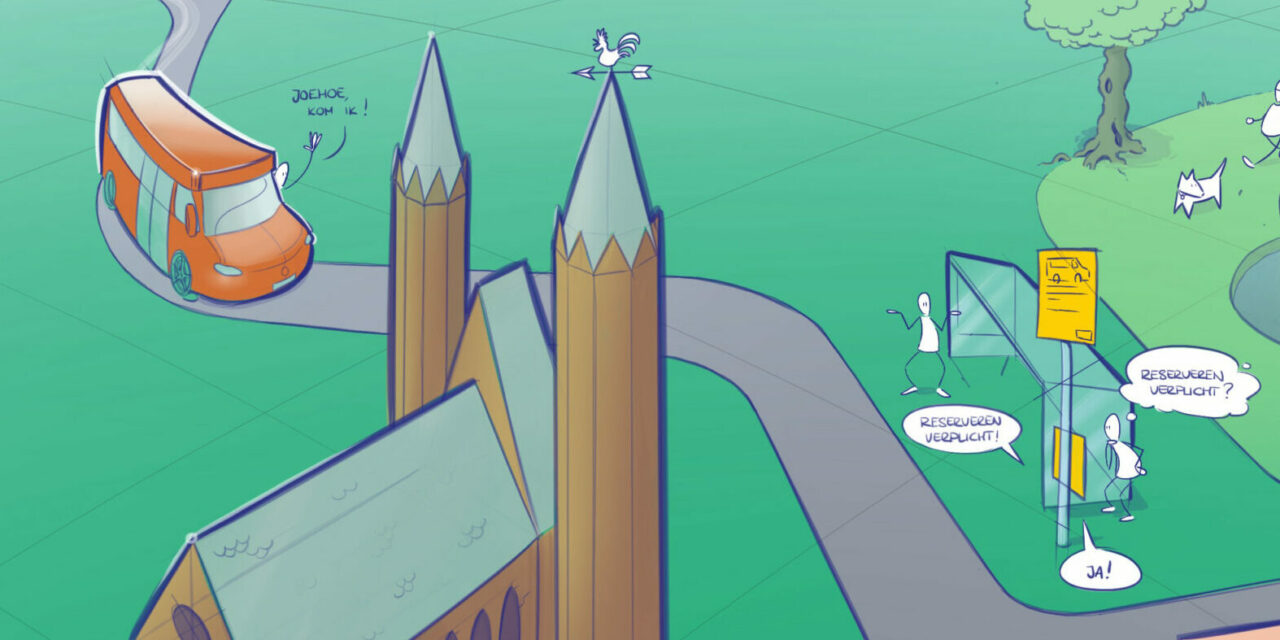An inclusive Demand Responsive Transport (DRT) service
Mar 2020 - ongoing
Keeping public transport accessible.
If the rise of a digital infrastructure in public transport is accompanied with a disappearance of physical accessibility, the travellers’ dependency on ICT in transport increases. For travellers that do not want to or can not cope with the digital transformations this can result in an increase of digital inequality or even digital exclusion (Durand, 2019).
According to Durand (2019), the known issues for travellers with low digital literacy are: insufficient physical information about the service, lacking support in checking in/out, in changing service providers (in the example of the OV-chipcard), in having the latest app update and with physical payment options as ticket offices, in providing travel information and finally, the consideration of modern wording as for example “travel product” which is the overarching word used for subscriptions. Regarding DRT services, the ownership and usage of a smartphone could provide several features that improves the user experience significantly (Sampimon, 2020). Therefore, the goal of this project is to design a demand responsive transport service for the Netherlands that is accessible for people that are excluded from the digital transformations.

Name: Max Sampimon
Master: Design for Interaction
Supervisory Team: Dr. ir. Suzanne Hiemstra-van Mastrigt, Dr. Euiyoung Kim, Ir. Claudia Spaargaren
Partners: Translink, DOVA, CROW, 9292, GVB, RET, Rover
Graduation project